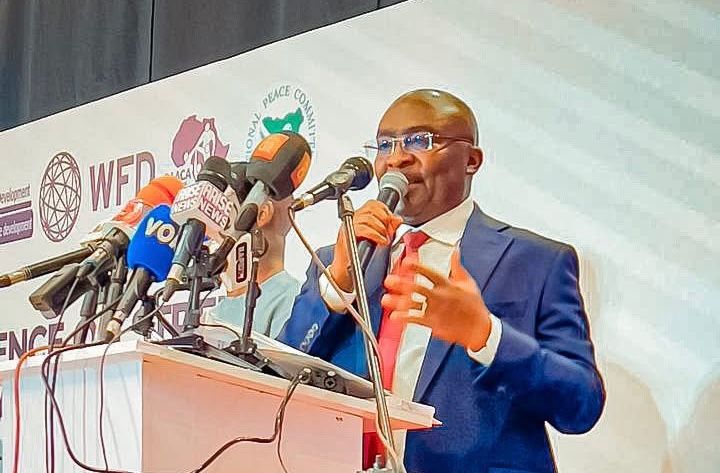David T.D. Vondee, the Member of Parliament for Twifo Atti Morkwa, has asserted that Dr. Mahamudu Bawumia, the former Vice President, played a pivotal role in securing Nana Akufo-Addo’s victory in the 2016 presidential election. Vondee credits Bawumia’s frequent lectures, particularly those delivered at Central University, with creating an image of him as the economic mastermind behind the New Patriotic Party’s (NPP) campaign. These lectures, according to Vondee, positioned Bawumia as a potential economic savior, significantly boosting the NPP’s credibility and appeal to voters.
Vondee argues that Bawumia, through his pronouncements, cultivated an aura of economic expertise and offered seemingly viable solutions to Ghana’s economic woes. He specifically points to Bawumia’s promises to stabilize the cedi and even achieve parity with the US dollar, claims that resonated with a populace yearning for economic stability. These pronouncements, delivered with conviction and backed by Bawumia’s academic credentials, created a groundswell of support that ultimately contributed to the NPP’s electoral success. Vondee’s argument suggests that Bawumia’s perceived economic prowess became a key differentiator for the NPP in the 2016 election.
However, Vondee contends that Bawumia’s subsequent performance as Vice President has failed to live up to the expectations he himself created. The MP criticizes Bawumia’s relative silence on economic matters in the lead-up to the 2024 elections, interpreting this as a tacit admission of failure to deliver on his earlier promises. He highlights the stark contrast between Bawumia’s outspokenness on economic issues during the 2016 campaign and his current reticence, portraying this shift as a sign of his inability to effectively address the country’s economic challenges.
Vondee’s critique centers on the notion that Bawumia’s initial pronouncements were not merely overly optimistic projections but rather misleading assurances intended to garner political support. He suggests that Ghanaians, having witnessed the discrepancy between Bawumia’s promises and the actual economic outcomes during his tenure as Vice President, are now disillusioned and unlikely to be swayed by similar rhetoric in future elections. Vondee posits that Bawumia’s credibility has been significantly eroded by his perceived failure to deliver on his economic pronouncements.
Furthermore, Vondee extends his critique to Bawumia’s character, arguing that his silence on economic matters demonstrates a lack of accountability and a disregard for the plight of ordinary Ghanaians. He paints a picture of a politician who, having achieved power on the back of lofty promises, is now unwilling to address the very issues he previously championed. This perceived evasion of responsibility, according to Vondee, disqualifies Bawumia from holding any future leadership positions within the country.
In essence, Vondee’s argument constructs a narrative of inflated expectations, unmet promises, and subsequent silence. He credits Bawumia’s initial economic rhetoric with significantly contributing to the NPP’s 2016 victory, but then highlights the perceived disconnect between those pronouncements and the subsequent economic realities. This perceived disconnect, coupled with Bawumia’s relative silence on economic matters in the lead-up to the 2024 elections, forms the basis of Vondee’s critique of Bawumia’s character and leadership credentials. He ultimately argues that Bawumia’s actions reveal a pattern of overpromising and underdelivering, thereby disqualifying him from future leadership roles.


